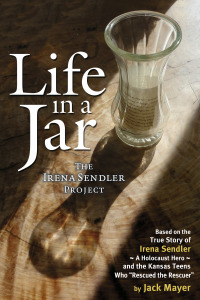| Read Selma Metzger Winkler: Her Experience in Nazi Concentration Camps The following account was lovingly compiled by Martin Winkler, grandson of Selma Metzger Winkler, during many conversations with his grandmother. He has worked untiringly to set down the facts and circumstances of her story as correctly as possible, so that future generations will be made aware of the suffering and degradation endured by millions of people — people like Selma and her family — caught in the madness of Hitler’s Nazi Germany. “Lest we forget!” Read Pearls and Lace: Poetry by Magdalena Klein MAGDALENA KLEIN (1920-1946), the youngest child of a middle-class Jewish family in northwestern Romania, was an eyewitness to the rise of fascism in Europe and the horrors of World War II. The poetic journal Magda kept during those years shows the stark contrast between her youthful love of life and the grim reality of the world around her. Three Books by Ina Friedman (Encouraged for Younger Readers) Ina R. Friedman has explored the impact of the Nazi regime on the lives of young people in three books. Her first, Escape or Die; True Stories of Young People Who Survived the Holocaust describes the courageous and desperate steps young Jews took to escape from the Nazis. Her second book, The Other Victims: First Person Stories of Non-Jews Persecuted by the Nazis, an ALAYAD “Best Books” and an ABA “Pick of the List,”, examines the Nazis’ attempt to create a master race by wiping out so called “defective traits” and the human suffering caused by the Nazis’ policies. In this third book, Flying Against the Wind: The Story of a Young Woman Who Defies the Nazis, she relates the story of a young German Christian who refuses to accept the hatred and violence of the Nazis. Though she pays a terrible price for her resistance, she remains undefeated in spirit. Courage Under Siege Rywka Rybak/A Survivor of the Holocaust Our first survivor’s story by a woman, this book was written in 1946 but only recently translated. Follow her experiences through the Holocaust. | How Dark the Heavens by Sidney Iwens Recipient of the Derleth Non-Fiction Book Award, this story is shared as a unique journal, chronicling the 1400 days Sidney spent under Nazi terror in Lithuania.
The Last Sunrise by Harold Gordon Abe’s Story by Abram Korn, edited by his son Joseph Korn Keep Yelling by Maurie Hoffman Jan Karski: How One Man Tried to Stop the Holocaust The Last Witness: The Child Survivor of the Holocaust | |||||||
Home Children of Holocaust Survivors – Documenting the Stories Holocaust Survivor Books in Education…A Legacy Forum for Teaching the Holocaust



